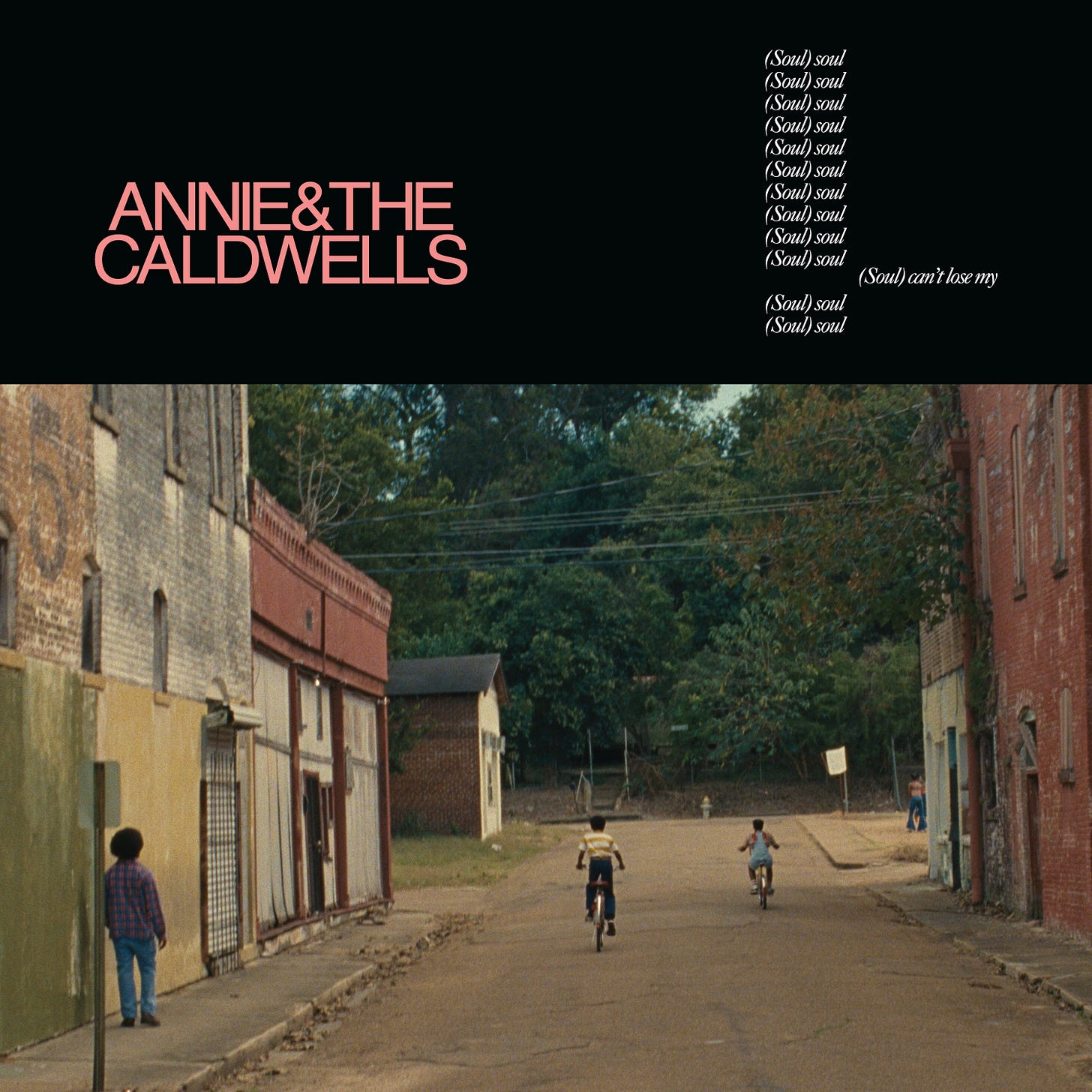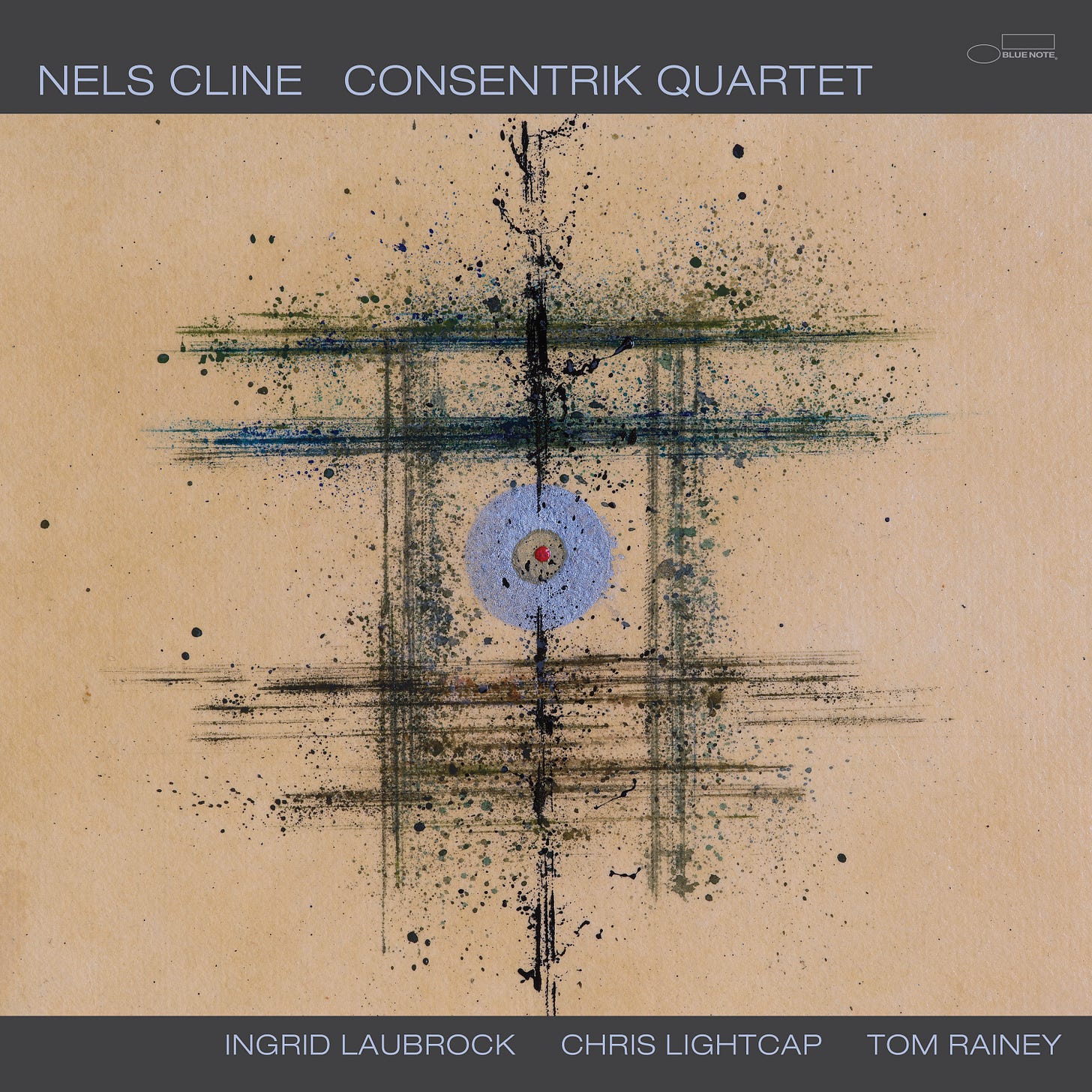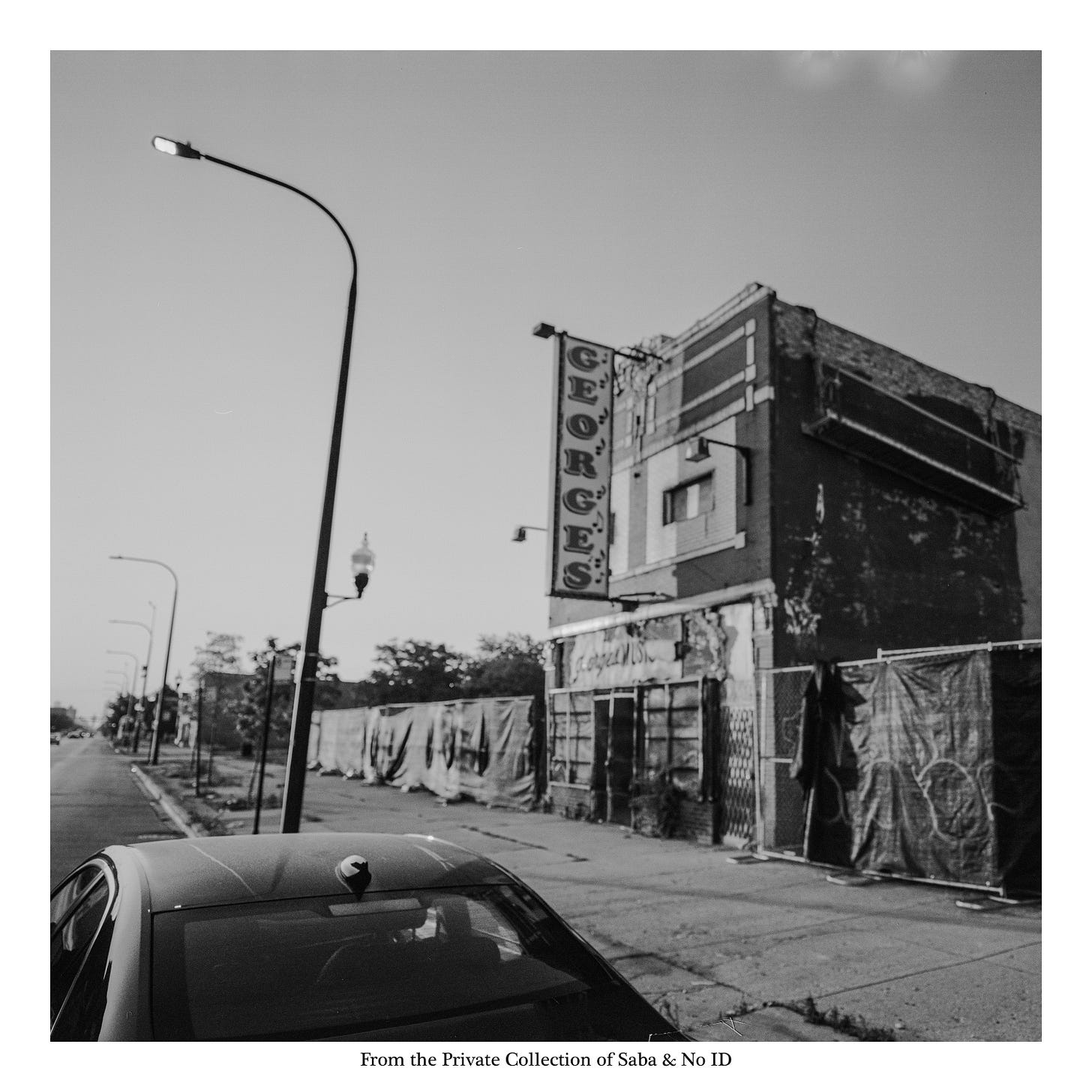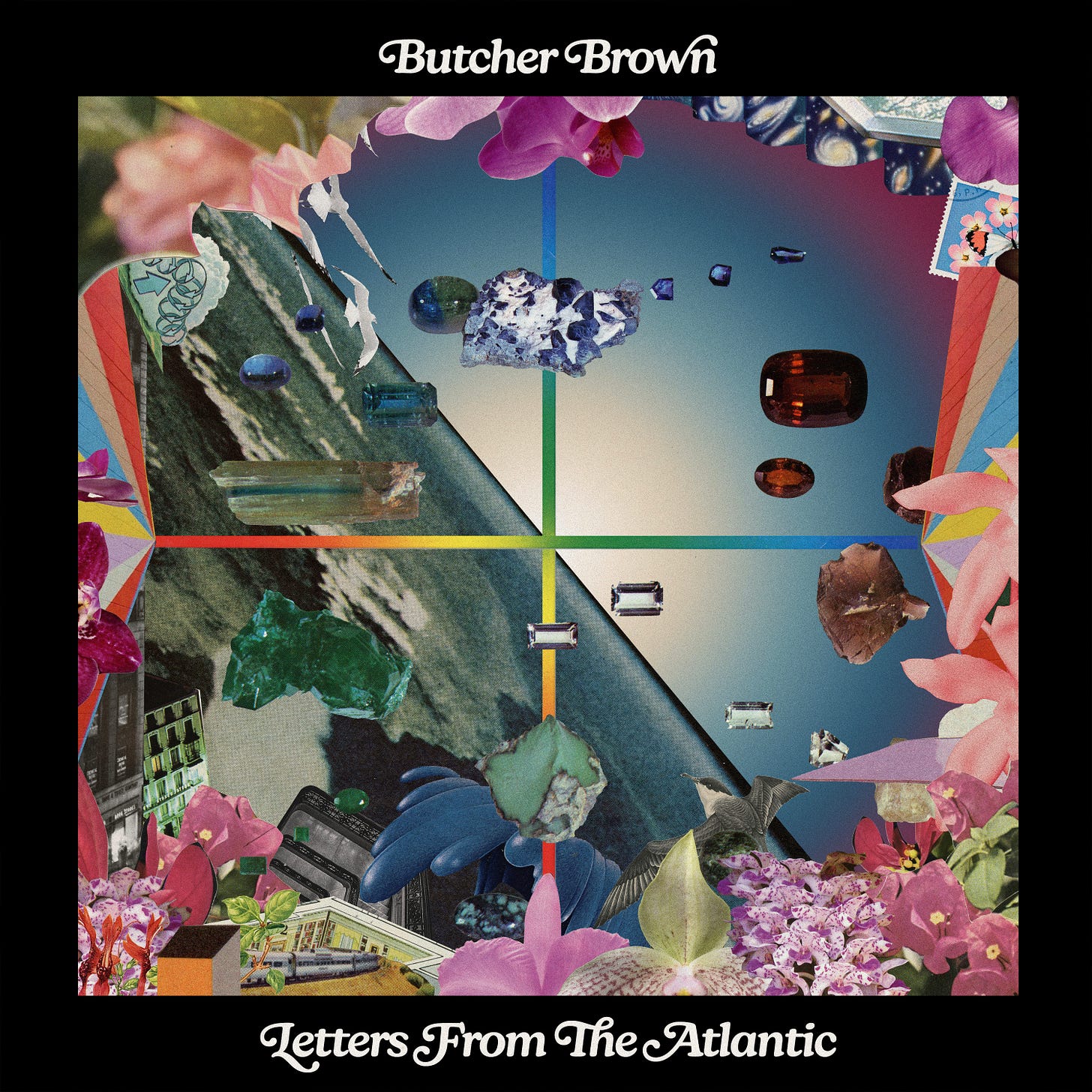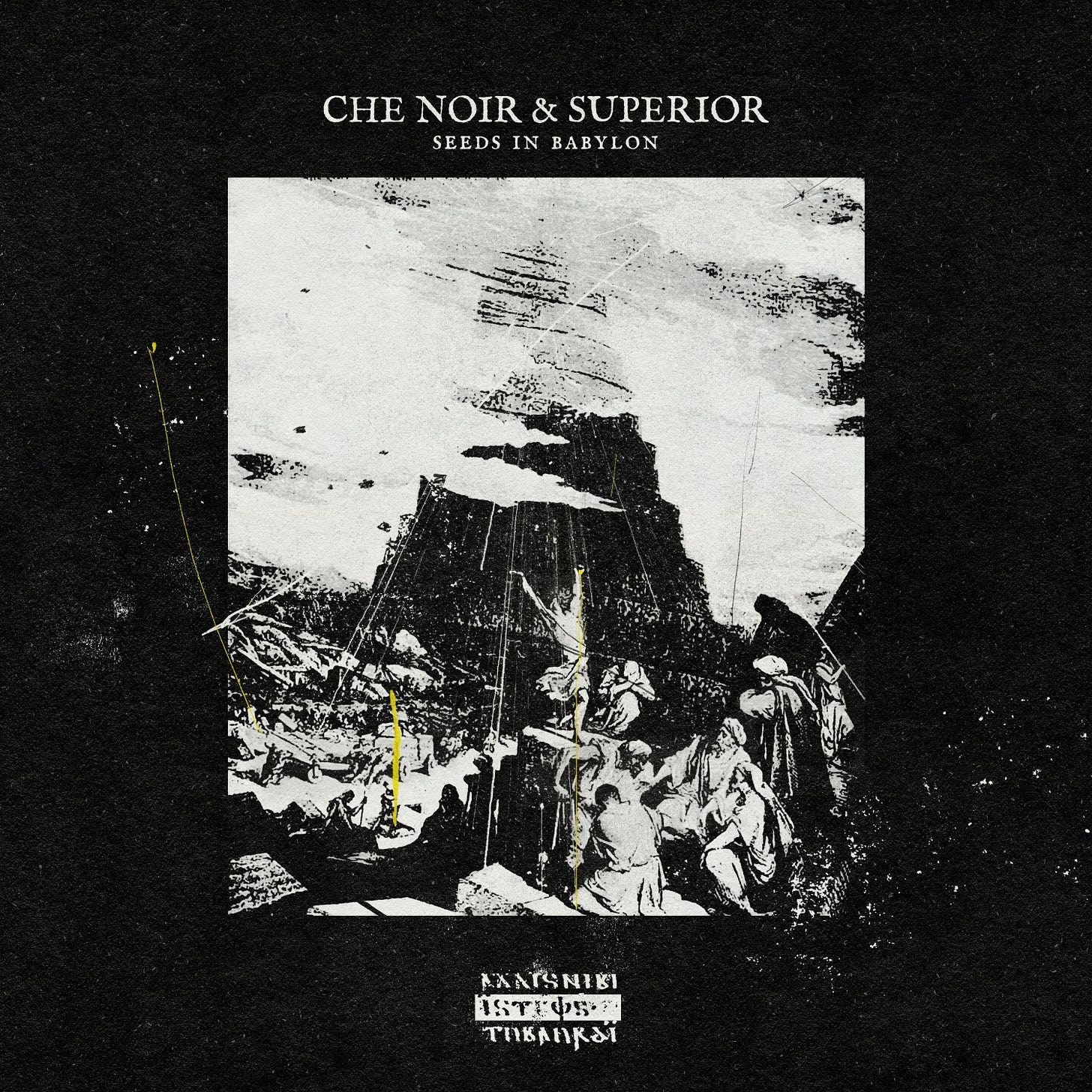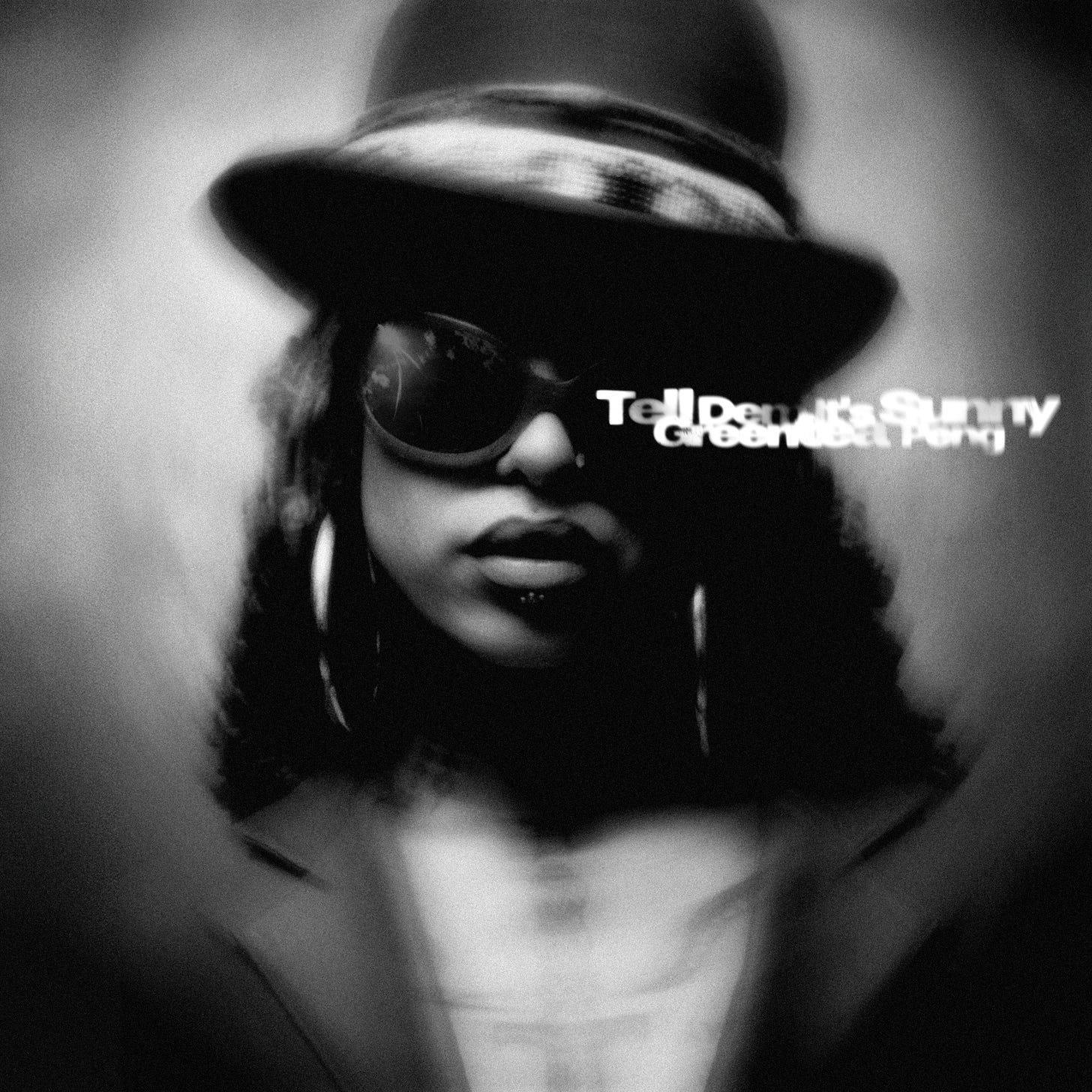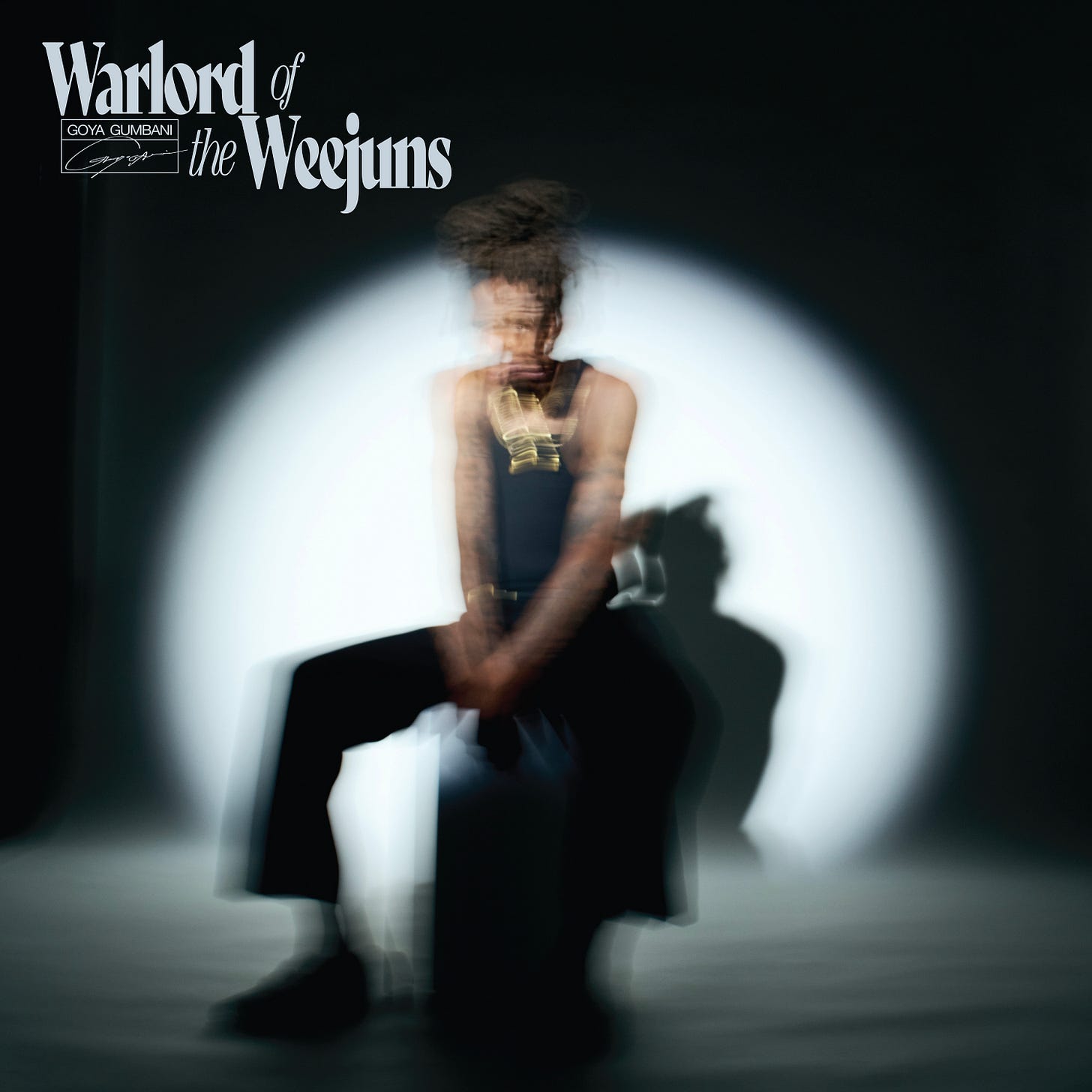March 2025 Roundups: The Best Albums of the Month
With releases from clipping. to Lady Gaga, here are notable releases in March that stood out to us as the best albums of the month.
Records from March 2025 offer clear insight into current music trends. As winter gives way to spring, new sounds step into the spotlight. Lady Gaga occupies a leading role with her album Mayhem. Her work shows a clear structure that aligns with modern production techniques. Released earlier this month, the album has drawn attention for its return to The Fame days. Additional contributions come from Jon B, Annie & The Caldwells, Nels Cline, and Greentea Peng. Editors at Shatter the Standards arranged this list in alphabetical order. We hope that April marks the season of renewal.
Annie & The Caldwells, Can’t Lose My (Soul)
David Byrne’s post-Talking Heads hustle leans hard into lifting up talent. Annie and the Caldwells fit the mold, featuring 40 years of grind, no contract, and seasoned hands. Can’t Lose My (Soul) lands through Byrne’s outfit, produced by Sinkane, and it’s a beast. The title track stretches ten minutes, pulling you through the murk of soul, not some organ you can pin down, but the root of the genre’s name. Sinkane builds it tight and fills it with layers of soundtracks propping each other up, with every voice fighting for the front. It’s no timid gospel redo. The album hits like a first swing, rethinking 2025’s take on the sacred with a gut-punch drama. Byrne’s eye for quality holds—audio nuts will geek out, but the weight sticks. Experience shows, and the struggle is now paying off. — Imani Raven
Nels Cline, Consentrik Quartet
Nels Cline’s fourth Blue Note release doesn’t sound like his usual guitar-driven work. This time, with the Consentrik Quartet, Ingrid Laubrock’s saxophone steps up front, and Cline seems fine playing a quieter role. The group, rounded out by Chris Lightcap on bass and Tom Rainey on drums, first played together at The Stone in Brooklyn, a free-improvisation night just before the pandemic locked everything down. Cline wrote the album in that forced pause, shaping it into something that feels tied to Blue Note’s past, like the ‘60s records from Eric Dolphy or Andrew Hill. It’s got a steady, meditative pulse built on the organic sound of post-bop from that era. But it’s not all mellow—“Satomi” throws in some wild punk-jazz moments that pull you out of the calm. — Nehemiah
clipping., Dead Channel Sky
clipping.’s core is three nerds. It’s not a stretch to picture them rattling off essays about some overlooked horror flick or geeking out over a 1930s guy who sparked electronic music by jabbing a cable into his gut. So it’s no shock their shift from horrorcore—chewed up and spit out in their last two records—lands them in cyberpunk territory. That’s the pitch, anyway. The promo calls it Dead Channel Sky, but don’t expect Keanu Reeves or neon-drenched catboys on bikes. This isn’t that cyberpunk. It’s closer to Blade Runner’s split society or the grim digital mess lurking behind your Instagram scroll. Daveed Diggs’ lyrics hit hard as always, wrestling with the chaos of tech fantasies gone wrong. He paints scenes tied to dial-up screeches and cheesy hacker-movie code spills, but they’re just as much about today’s techno-fascism—where your worth’s tied to a data profile. Diggs digs into how we dreamed of digital paradise thirty years back, using it to slap a mask on the dystopia we’re stuck in now. — Harry Brown
PremRock, Did You Enjoy Your Time Here...?
PremRock’s been at it for years, grinding out solo records long before ShrapKnel started turning heads. If you’ve clocked him lately, it’s probably through that partnership, but his latest, Did You Enjoy Your Time Here…?, marks his first solo drop since 2021’s Load Bearing Crow’s Feet. This isn’t an album you breeze through. Prem stuffs it with clever wordplay, twists, turns, and references that hit you with a smirk. A couple spins in, and it’s obvious: this is some of his sharpest stuff yet. The beats lean psychedelic, pulling from that post-boom bap sound, and they’re tight as hell. Blockhead, YUNGMORPHEUS, Child Actor, Controller 7, ELUCID, Willie Green, all heavy hitters, lay down tracks that stick. Prem’s lyrics keep pace, dishing out lines that make you think, backed by a killer lineup: Pink Siifu, Cavalier, Nappy Nina, Illogic, AJ Suede, Backwoodz honcho billy woods, and Castro himself. It’s a crew that doesn’t just show up—they push the whole thing forward. — Phil
Yukimi, For You
Yukimi moves beyond Little Dragon with For You, a thirteen-song set fusing jazz-pop and electronic sounds. Her voice digs into her character, reflecting the listener’s perspective too, giving the project its inward pull. “Make Me Whole” starts soft with a thread of need running through its quiet tones, building to sharp vocal moments by the close. She teams with POS on “Jaxon,” where firm drums and bending keys aim to lift younger ears. The electro-jazz framework holds steady across the tracks, allowing Yukimi to sort her experiences and turn them toward the audience. This album marks her solo start, carving a jazz path that distinguishes her from past efforts and signals a fresh creative turn. — Tai Lawson
Saba & No ID, From the Private Collection of Saba and No ID
No ID shaped Chicago rap with his work on Common’s first three albums in the ‘90s and guided Kanye West early on. He’s since produced for JAY-Z, Snoh Aalegra, Vince Staples, and more. Saba, a key figure in Chicago’s newer wave for over a decade, now joins him on a collab album that’s been brewing for years after A Few Good Things. No ID builds beats from soul, jazz, and funk, while Saba brings an old-soul flow that fits just right. Singers like BJ the Chicago Kid, Raphael Saadiq, Kelly Rowland, Madison McFerrin, Ogi, Ibeyi, and Eryn Allen Kane add smooth, warm layers. The album nods to Chicago rap’s past and carves its own spot in today’s sound. — Phil
Butcher Brown, Letters from the Atlantic
Hailing from Virginia, Butcher Brown has carved out a space as a genre-blending quintet. The lineup includes Marcus “Tennishu” Tenney on trumpet and saxophone, Morgan Burrs on guitar, Corey Fonville on percussion, Andrew Randazzo on bass, and DJ Harrison on keyboards. Their twelfth album, Letters from the Atlantic, and fifth for Concord continues their practice of fusing musical styles. Starting with “Seagulls,” the record features soft, wave-like chords paired with a broken beat, creating an atmospheric entry point. Over twelve tracks, the band produces grooves that maintain a laidback feel while incorporating varied textures and rhythms. Their ease of moving between genres highlights a strong grasp of multiple musical forms. With its detailed production and focused performances, Letters from the Atlantic is a key moment in Butcher Brown’s catalog, reflecting their evolving approach to musicianship. — Reginald Marcel
Lady Gaga, Mayhem
Lady Gaga’s early synthpop days, marked by The Fame and Born This Way, set a high bar she seemed eager to sidestep after 2013’s Artpop split opinions. She turned to jazz, country, soundtracks, and even acting, handling each shift precisely and proving she could outlast the pop star mold. Still, plenty of listeners missed that original electronic pulse. Chromatica, released in 2020, brought her back to dance-pop, shaped by her own rules rather than past expectations. Now, five years on, Mayhem builds from that point. The singles “Disease” and “Abracadabra” kick things off, channeling the Old Gaga sound with a sharper, more personal twist. Working with Andrew Watt, Cirkut, Michael Polansky, and a one-off with Gesaffelstein, she pulls from Prince, Bowie, and New Order, blending their echoes into something distinctly hers. Mayhem leans into art pop with a focus that feels like Gaga is refining what she started. — Jill Wannasa
Backxwash, Only Dust Remains
Experimental hip-hop gets a jolt from Backxwash, whose music starts with horrorcore, then mixes nu-metal, doom metal, and post-rock flavors. After dropping an album yearly since 2019, Backxwash stepped back for two years before unleashing Only Dust Remains, her fifth work. This project dials down the earlier chaos, favoring sharper production while stacking thick soundscapes, often alongside collaborators. Take “History of Violence,” where murky synths part for Kelvin Mansaray’s violin to pierce through. Or “Black Lazarus,” which rises from tribal chants into pounding drums, gospel voices, and orchestral synths. Her sound hits hard on purpose, channeling inner turmoil, tied to her black magic roots yet chasing redemption and connection. She lands that in the posse cut, blending goodbyes to friends with jabs at foes, then handing the outro to Pet Wife’s vocals, a gospel choir, and Morgan-Paige’s introspective synths for a grounded close. — Brandon O’Sullivan
SPELLLING, Portrait of My Heart
SPELLING steps into a sound born outside the usual noise. Her latest, Portrait of My Heart, flips the script from her earlier days of folk laced with endless loops and pop dressed in Baroque finery, landing instead on a batch of songs that cut deep with personal weight, driven by guitars that bite quickly and leave marks. That pressure fuels a track where sharp riffs meet yells that scrape the air, building a space that feels cornered and tense before another rises with a big, bold lift, its electronic hums and strange vocal turns keeping it from settling anywhere safe. Songs here don’t linger long in one spot, keeping things shorter than her old habit of letting tracks unspool for minutes on end, yet they twist through offbeat paths, like one that dances near pop’s glossy pull while kicking against it with a stubborn streak. The end borrows a tune from shoegaze’s past, flipping it to bare its soft underbelly, wrapping it in a fog that holds tight to its roots while making it her own. Portrait of My Heart swings open the door to more ears with its punch, but it never lets go of the quirks and lone spirit that carve her place, mixing a wider call with a sound that bends its way. — Charlotte Rochel
Ché Noir & Superior, Seeds In Babylon
Out of Ché Noir’s catalog, Seeds In Babylon edges out some of her works near the top and rivals The Lotus Child, which dropped last fall. Superior, a key name in German hip-hop production right now, teams up with her sharp, Buffalo-bred lyricism to make this year’s debut stand-up. The opener, “Revelation,” lays down a soulful tone; her verses focus on earning a crown by saving rap. “Bow & Arrow” picks up with a funk-driven beat, framing money like a catch on her line. Closing in on “Destiny Rose” before the outro, she trades drums for bare strings, highlighting how motherhood brings her a rare kind of happiness. — Tabia N. Mullings
Greentea Peng, Tell Dem It’s Sunny
Greentea Peng’s new album suggests she may enjoy a spliff sometimes. Tell Dem It’s Sunny sounds like quality record gear with a smoky tone. The record works in dubby trip hip and woozy neo-soul. The lyrics shift between politics, spirit, and odd humor. They move over loops and heavy bass lines. She worked with collaborators such as Earbuds, Samo, and Wu-Lu. The lead single “Tardis (Hardest)” mentions Babylon. It fits with hints of healing and spiritual thought. On “One Foot,” the track asks, “Is it too late for me?” This simple question gives the song extra weight. The album pushes aside any doubt as it makes its play for Album of the Year in early Spring. — Jamila W.
Jon B, Waiting On You
After a long gap since 2012, Jon B delivers Waiting On You balances smooth ballads and faster tracks, showing his range. “Chozen” kicks things off, its guitar-heavy sound backing clear vocals. “Natural Drug” and “Pick Me Up” recall his earlier days, blending past and present. Collaborations add depth: “Show Me” with Alex Isley flows naturally, and “Understand” with Tank carries a grounded energy. “Bandit In the Night” shines with its detailed production and strong performance. “Still Got Love” counters that with a light, joyful feel. The production supports the tracks without overpowering Jon B’s voice, a result of careful effort over the years, sharpened by creative space during the pandemic. Waiting On You proves his staying power in R&B. — Tai Lawson
Goya Gumbani, Warlord of the Weejuns
Goya Gumbani is a product of Flatbush streets and London jazz cafes, split between two worlds. Warlord of the Weejuns nods to Miles Davis; critic George Frazier once called him that, tied to those Weejun loafers. Gumbani channels Davis’s spirit, dodging rules and boxes with every move. Jazz isn’t just sampled here. It’s how he breathes. The album keeps it close with bits of talk and loose interludes slip between tracks. On “UPtown Mami (Skit),” a woman laughs at the title’s odd ring. “Firefly” has Fatima singing about light in the dark, mirroring Gumbani’s hunt for something real. Then “Chase the Sunrise” pulls in Yaya Bey, Fatima, and lojii. He’s running from old scars and toward what’s next. Cracks show in his cool exterior. Past pain seeps out. — Randy
Derya Yıldırım & Grup Şimşek, Yarın Yoksa
The name “Derya Yıldırım and Grup Şimşek” carries a quiet joke for those who catch it. In Turkish, “Yıldırım” and “Şimşek” both mean lightning, a fitting echo for a band that seems to trap something electric on their third album, Yarın Yoksa. The title translates to If There Is No Tomorrow, implying a tension between dread and reckless joy. Yet the music doesn’t chase wild excess. Instead, it turns inward, tracing personal ache and broader unrest with a steady hand. Yıldırım, raised in Hamburg’s Turkish enclave, leads the group, joined by South African drummer Helen Wells, French guitarist-flutist Antonin Voyant, and keys player Graham Mushnik. Their sound pulls from Anatolian roots but stretches outward, folding in influences without apology. The record hums with the comfort of a partnership worn smooth by time, a chance blend of players that somehow holds together. — Harry Brown


